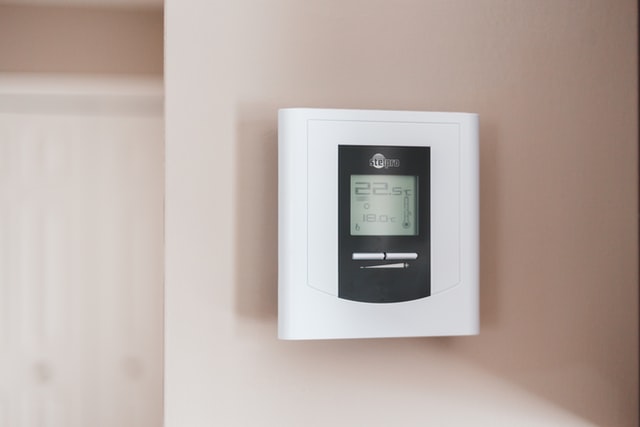3 Simple Ways to Reduce Heating Costs in Your Home
Throughout the colder months, heating systems provide welcome warmth and comfort to your home. But the downside is, if you are not smart with your heating, you can be in for a nasty shock when the bill arrives.
The good news is that there are small things you can do that will make a big difference to your energy usage, which in turn will keep your heating costs down. So, in this article we’re sharing three simple ways to reduce the heating costs in your home.
1) Choose the right heating system

If you’re buying a new heating system for a renovation or newly built home, or are purchasing one to replace an existing heater, taking some time to research the best system for your needs can save you plenty in the long run. Choosing the right type of heater and the right size for your space will make a big difference to how effectively it works, and how much it will cost to run.
The key considerations include the type (e.g. a room/space heater versus central heating), the energy source (e.g. gas, electric or wood) and the style of heater (e.g. gas ducted heating or reverse cycle split system). Each option has its pros and cons, so to ensure you get the best performing and most economical heater for your space, it’s essential that you match the dimensions of the room (or rooms) to be heated with the right unit. If in doubt, speak to our friendly team who can advise a solution that's the best fit for you.
2) Use your heating system efficiently
 Buying the right system goes a long way in reducing your costs, but if you don’t use it wisely, and your system is not operating efficiently, it’s likely your bills will still blow out. Keep in mind that small changes in how you use your heater can save you up to 40% on your bill.
Buying the right system goes a long way in reducing your costs, but if you don’t use it wisely, and your system is not operating efficiently, it’s likely your bills will still blow out. Keep in mind that small changes in how you use your heater can save you up to 40% on your bill.
One of the biggest factors that will affect your running costs is the temperature setting. Setting your thermostat between 18–20 degrees should give you a cosy home without breaking the bank. Keep in mind that every extra degree higher that you set the temperature can increase your heating costs by 15%, which makes a big difference in the overall total of your bill. Other cost saving tips include, where possible, only heat the spaces you are using via zones, turn off your heating when it’s not needed (e.g. overnight), install ceiling fans to improve distribution of heat, keep filters clean and service the unit regularly.
3) Reduce heat loss in your home
 When you minimise heat loss, you’ll reduce the workload and running cost of your heater. A well-insulated home is one way to minimise heat loss, with the best possible scenario being a home with high quality insulation installed in the ceiling, walls and floors. A fully insulated home can save you 40–50% in heating costs, and while it can be more challenging to achieve this in an existing home, if you are renovating or building a new home, this is something that can add real value and save you a significant amount on your energy bills over time.
When you minimise heat loss, you’ll reduce the workload and running cost of your heater. A well-insulated home is one way to minimise heat loss, with the best possible scenario being a home with high quality insulation installed in the ceiling, walls and floors. A fully insulated home can save you 40–50% in heating costs, and while it can be more challenging to achieve this in an existing home, if you are renovating or building a new home, this is something that can add real value and save you a significant amount on your energy bills over time.
Other ways you can reduce heat loss is to seal off draughts, for example using seal tape, draught snakes and filling gaps. Appropriate window coverings are another important way to retain heat in a room, especially considering a single pane of glass can lose almost ten times as much heat as the same area of insulated wall. Thick curtains with pelmets are effective, particularly in combination with energy efficient window frames and glazing.
Small changes make a big difference
As the cost of energy continues to rise, reducing the running cost of your heating system is becoming more and more important. So, whether you are purchasing a new system and looking for the most economical heating option, or are searching for ways to reduce the operating costs of your existing system, making small changes can make a big difference.
To find out about our economical split-system heating systems, get in touch with our team for expert advice on 1300 438 266 or pop into the Melbourne showroom today!
